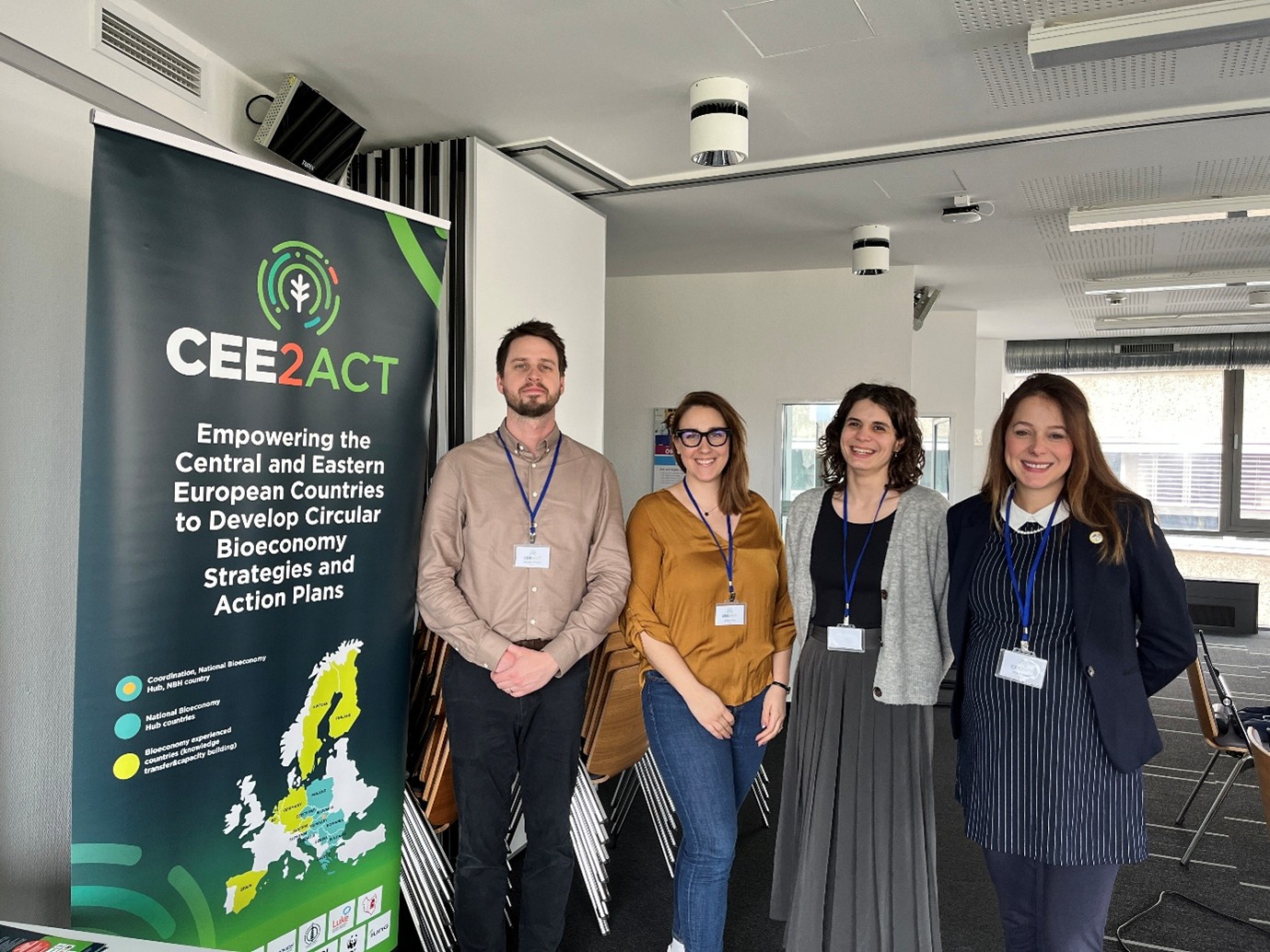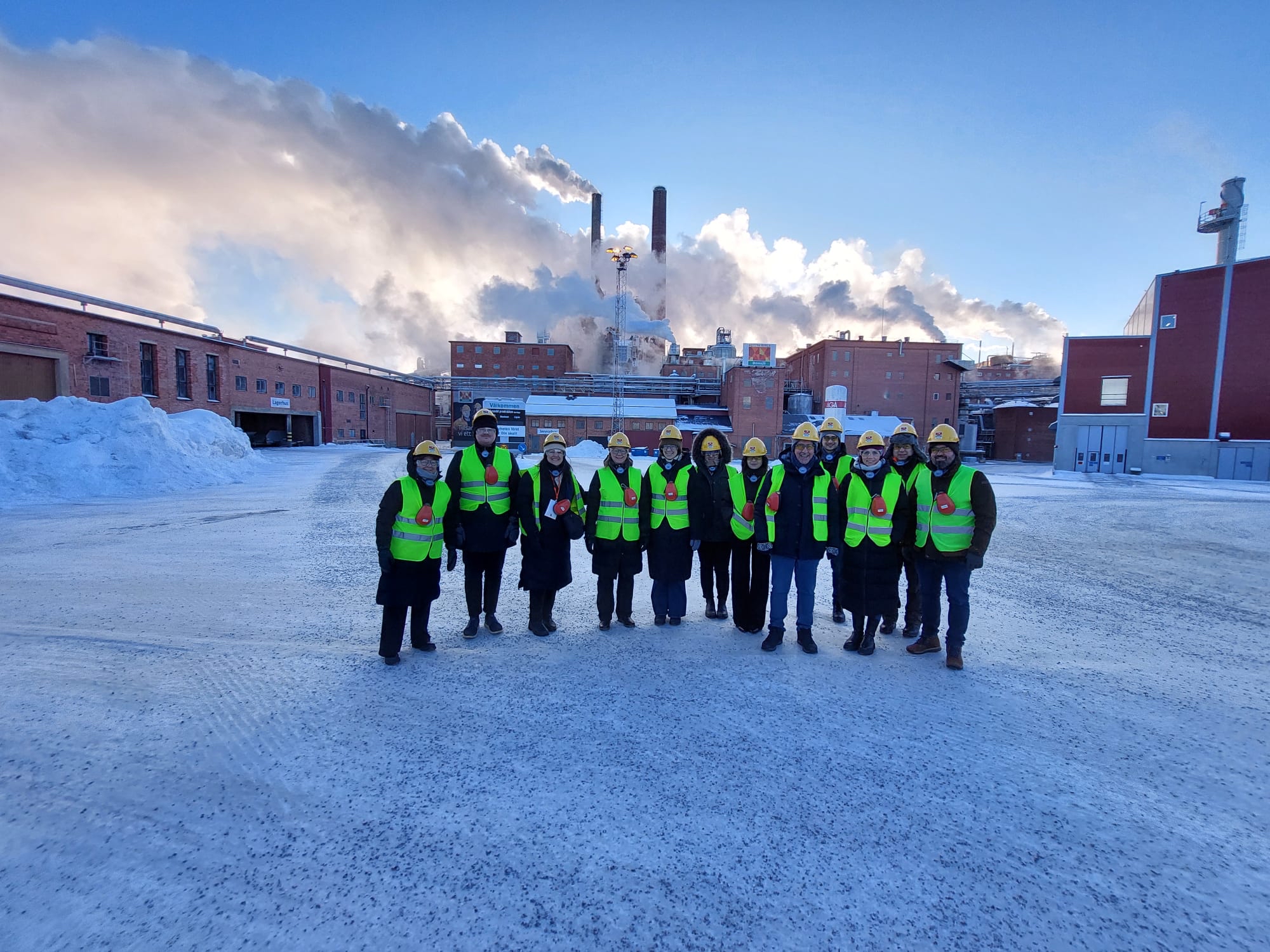Dr. Attila Széles, Head of the Wood Division at the Ministry of Agriculture, opened the session, introducing the Pan-European Wood Policy Platform and emphasizing the need for this platform to achieve a sustainable, circular wood economy.
This was followed by a presentation by Dániel Ganszky (GEO) on the recent results of the CEE2ACT project and an update on the activities of the Hungarian Bioeconomy Forum. During the workshop and presentation, special attention was given to the outline of the CEE2ACT National Roadmap, a key step in developing Hungary's biomass-based economy. At the end of the presentation, participants were invited to the final regional conference of the CEE2ACT project which will be organized by the end of 2025.
Korinna Varga, representing the BOOST4BIOEAST project, presented the results and developments of the project so far, followed by a presentation by Dr. Barbara Wassen, the Ministry of Energy's Travelling Ambassador for Climate Affairs and Climate Diplomacy, on "Aligning the European Green Deal and the Competitiveness Guidelines after COP29", including future events to follow.
Following a coffee break, Leena Kärkkäinen from the Finnish Institute of
Natural Resources *LUKE- CEE2ACT project partner) gave an online presentation on the development of Finnish bioeconomy
economic policy and the role of CEE2ACT. Katalin Kálai from Báy Zoltán Nonprofit Ltd. gave a presentation on the
Engage4BIO project's upcoming activities, which triggered an interesting discussion among participants on stakeholder
engagement. The Local Action Group (HACS: Hely Akció csoport) has been seen as a successful way to involve local
stakeholders in a community-based development strategy. The Local Action Group helps businesses and organisations
to find and agree with the objectives set out in the strategy and is committed to the development and improvement of the
local municipality.
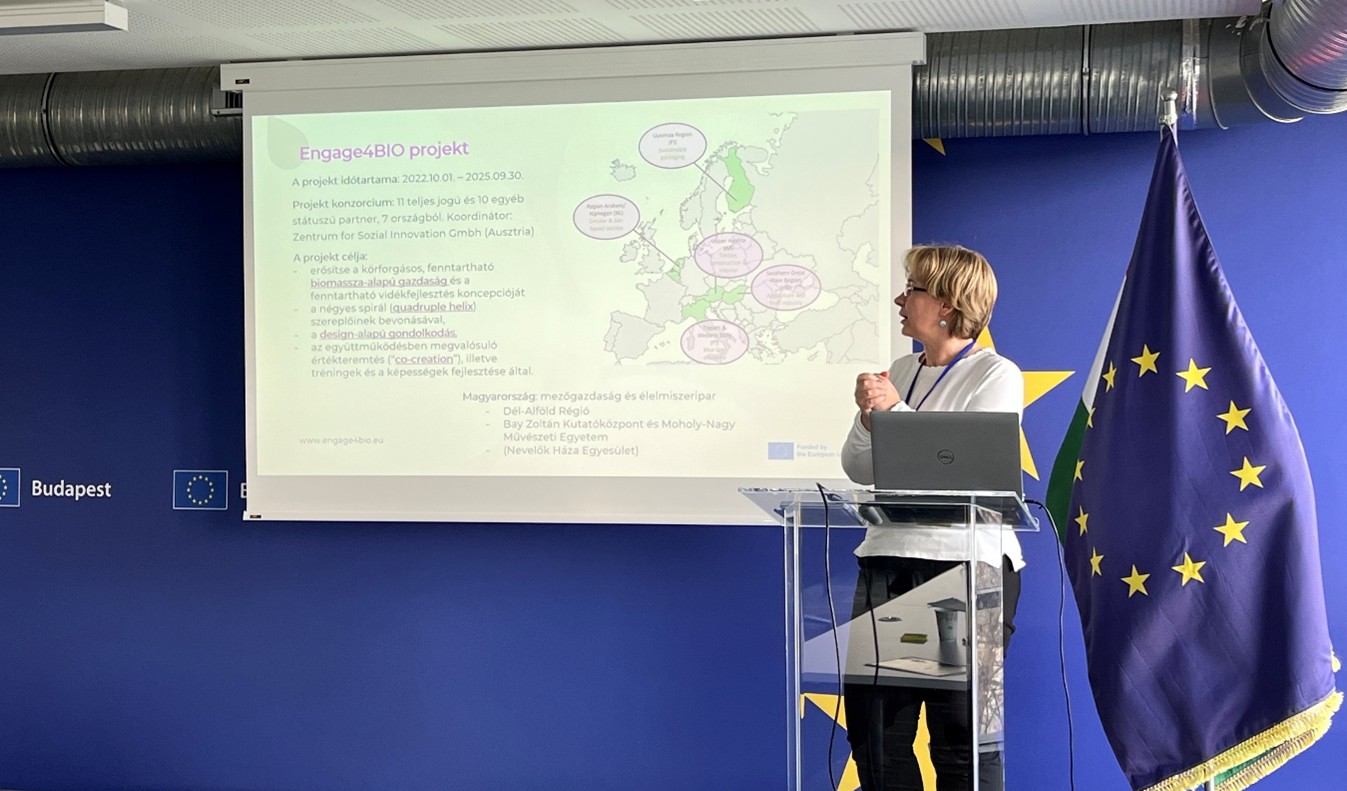
The session continued with an online presentation by Luisa Mascia, representative of the Circular Bio-based Europe Joint Undertaking (CBE JU), who provided an overview of the initiative and its various support schemes. She placed special emphasis on the Widening region and the financing opportunities available for bioeconomy development.
Mascia presented a summary of the CBE JU’s portfolio from 2014 to 2023, which includes 192 projects involving 1,552 beneficiaries across 43 countries, with a total of €1,117 million in CBE JU funding. Among the beneficiaries, 24% are universities and research centres, while private companies receive 67.4% of the funding. Of this amount, 35% goes to small and medium-sized enterprises (SMEs). The remaining 8.2% of funding is allocated to other types of beneficiaries.
A summary image (below) highlights the funding received by Hungarian
organisations, amounting to €0.92 million. This involves six SMEs engaged in a total of nine projects: two Innovation
Action (IA) Flagship projects, four IA projects, two Research and Innovation Action (RIA) projects, and one Coordination
and Support Action (CSA) project. To date, three of these projects are ongoing, while six have been completed.
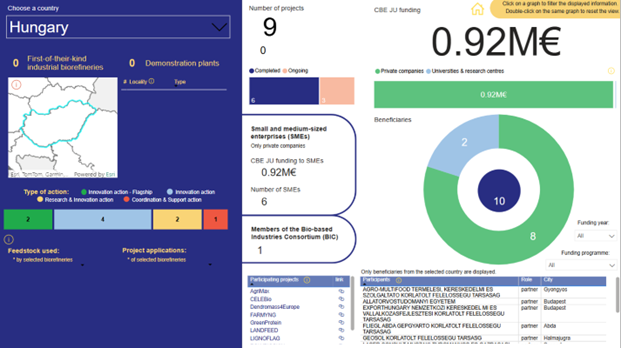
Afterwards, the workshop dedicated a co-creation session to discuss and shape the Hungarian CEE2ACT National Roadmap, as the expertise and experience of all presents are essential in shaping a realistic professional and correct transition process. Within the co-creation separate round table talks were set up.
The 1st table focused on the action points and priorities
determined in the National Roadmap of Hungary. The interdependence of the target area’s sector was emphasized
throughout the discussion, while the roadmap’s action items emphasized the need for innovation in the field, including
improvements to water retention systems and waste infrastructure, among other things. One of the most important
priorities is the creation of a national bioeconomy strategy and education about the bioeconomy. Additionally, during
the table talk the bureaucratic obstacles and legal instability were also brought up.
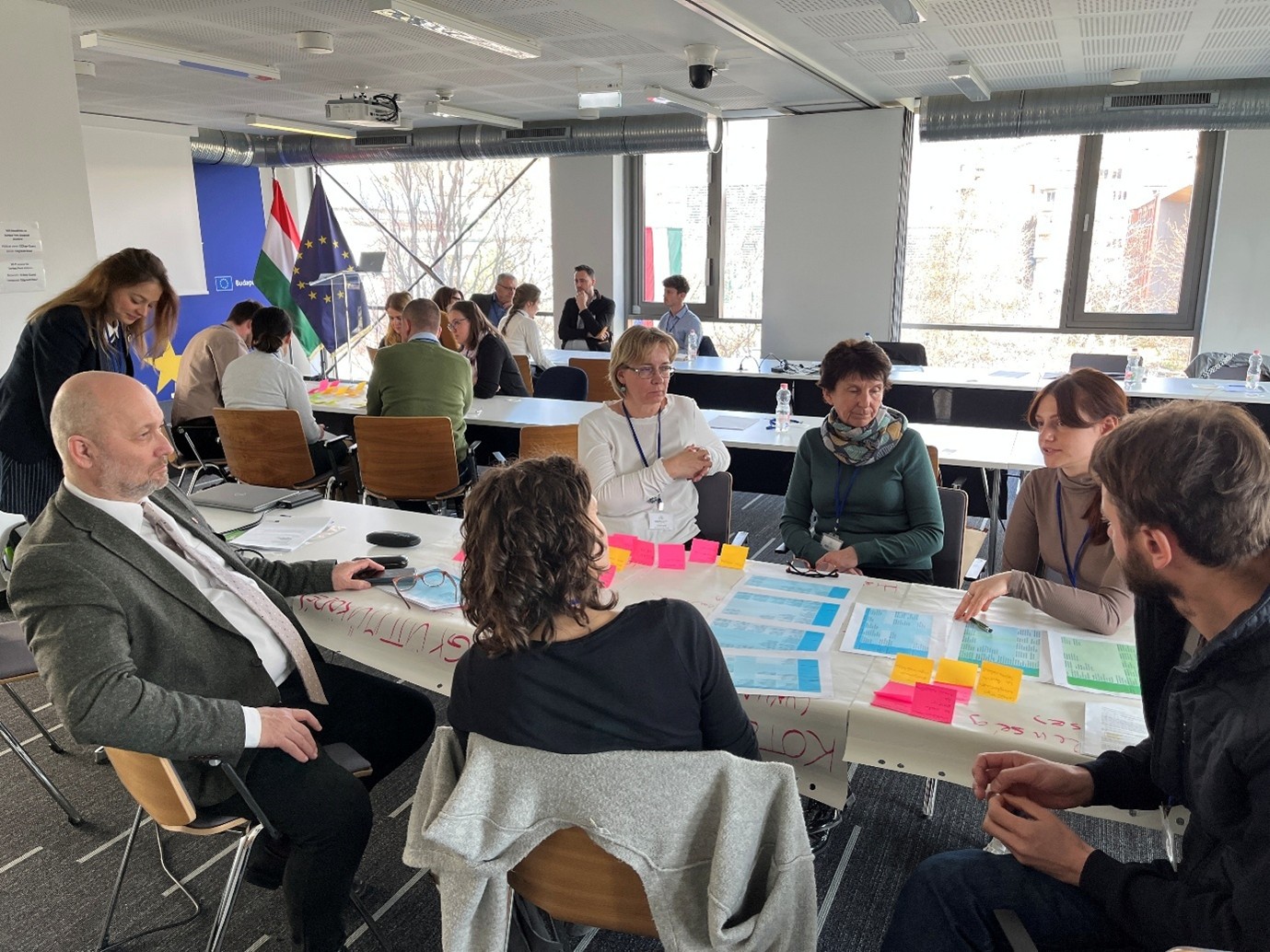
The second table focused on the identified challenges and barriers faced in the Hungarian bioeconomy. Participants
identified a lack of investment in innovation, weak start-up culture, and limited venture capital as significant
financial barriers. The discussion also underscored the need for cross-sector cooperation and a shift toward a
proactive, forward-thinking mindset to overcome greenwashing and inconsistent policies.
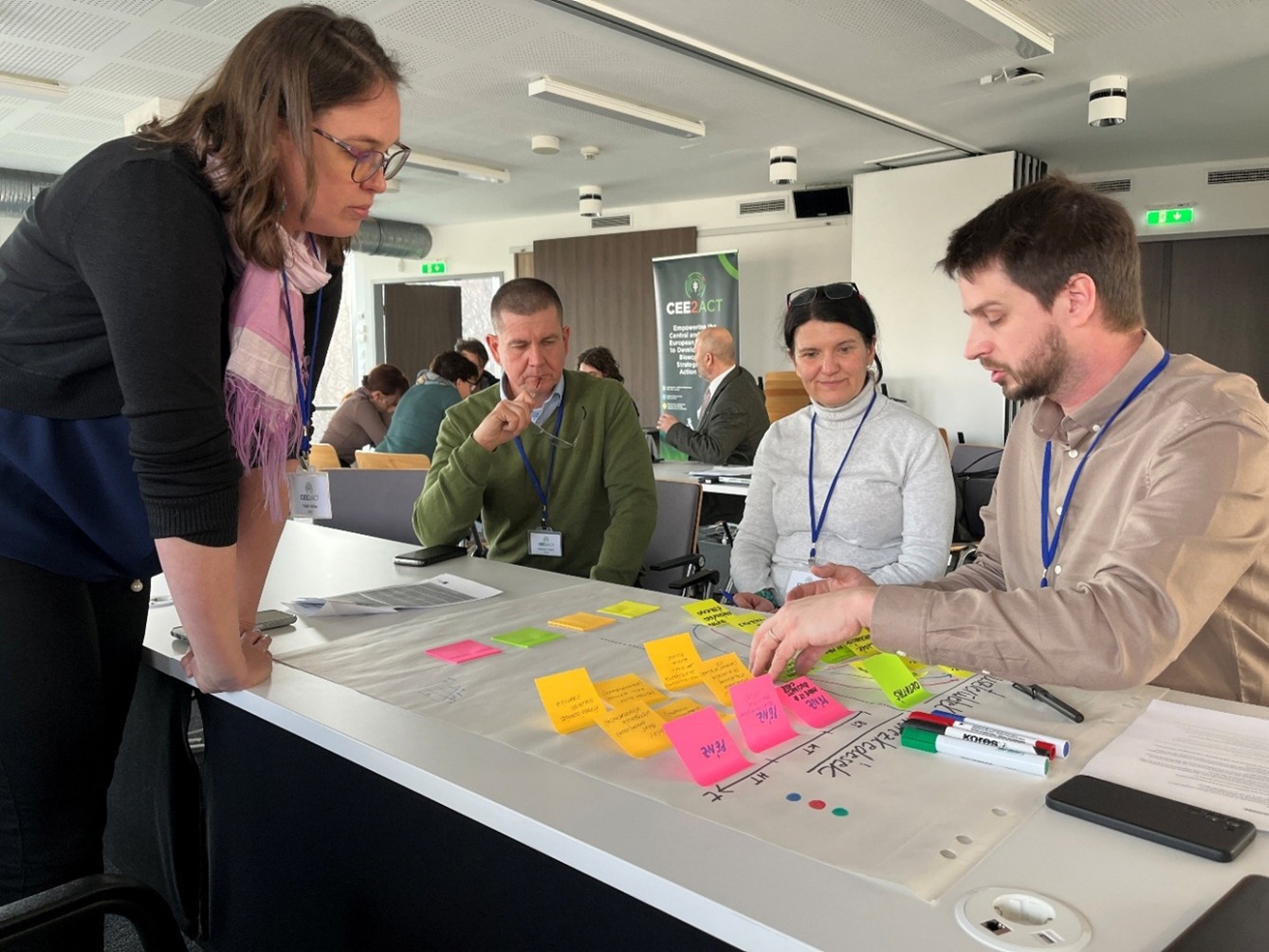
Discussion at the 3rd table focused on long-term collaboration, partnership, stakeholder roles and engagement. The need for one national platform to facilitate bioeconomy sectors was highlighted. These platforms could also provide aid for subsidies’ administrative burden could be eased via managed tenders. Experts called for clearer data collection responsibilities. Among other highlights also identified at different table tackles, the need to tackle all age groups with awareness-raising activities was emphasised in this section. Moreover, actions must be taken to ensure inclusive access by supporting underrepresented and disadvantaged groups.
We extend our sincere thanks to the representatives of Európa Pont and the European Commission Representation in Hungary for their continued support of the CEE2ACT project and for graciously hosting the three national workshops. We look forward to further collaboration in future EU projects.
We would also like to express our appreciation to all the presenters—Dr. Attila Széles, Dr. Barbara Wassen, Luisa Mascia, Leena Kärkkäinen, Katalin Kálai, and Korinna Varga—for their insightful contributions, as well as to all participants for their active engagement and valuable input during the table discussions.

